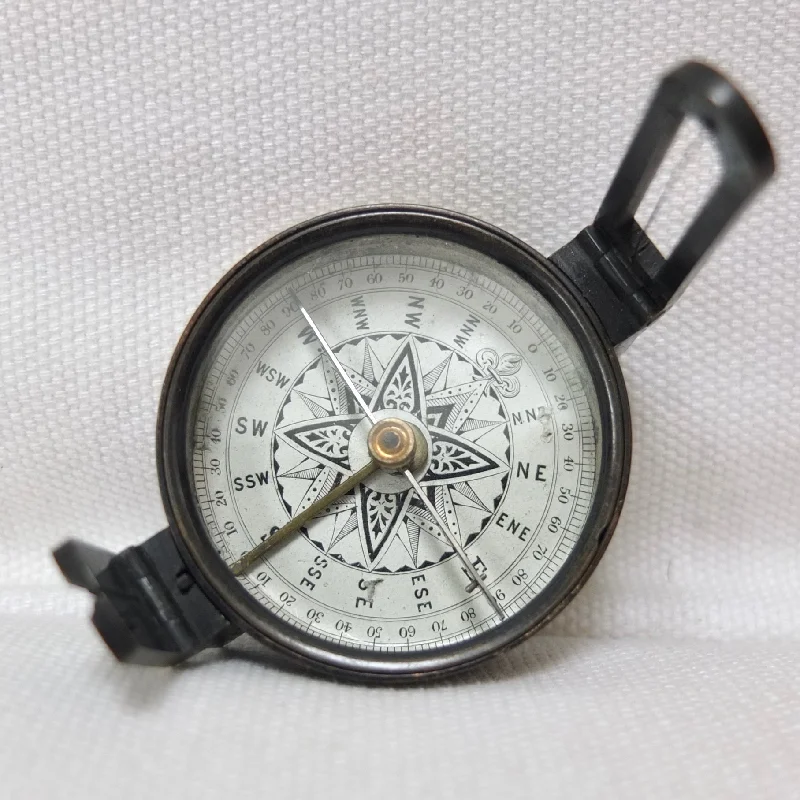An Aubrey Franks, Manchester, brass box pocket compass, with a press fit lid, folding sights and English bar needle, dating from c.1890-1900. This compass features a brass case with lid, paper compass card, English bar needle and jewelled pivot. There is a transit lock, operated when the sights are folded. The compass is signed by 'A. Franks, Optician, Manchester'. Inside the lid are the remains of the original 'A. Franks, 97 Deansgate, Manchester' paper label. An unsigned compass with an almost identical card design can be seen on p.26 of Compass Chronicles by Kornelia Takacs.
Aubrey Franks Ltd: Aubrey Franks set up his business as an optician in King Street, Manchester c.1879. Franks soon began to make and sell a range of optical instruments, such as microscopes, telescopes and magic lanterns. Around 1881, the company acquired additional premises at the corner of King Street and Deansgate. Seven years later, Aubrey took over his father Joseph's business on Market Street. Aubrey's business prospered and, by the 1890s, sold all kinds of optical and mathematical instruments, photographic and electrical equipment. One of his products, the Presto camera, was a very simple, fairly cheap camera, which was very successful, selling more than 28,000 in 10 years. In 1897, the firm gave the first demonstration of Edison's cinematograph in the north of England. Around 1917, the business was taken over by Aubrey's son-in-law, Maurice Saffer, who kept the company's name, A. Franks Ltd. Under his management, Franks Ltd became the first firm to bring radio and television to the Manchester area. During the 1920s, the firm's main premises remained at King Street and Deansgate, but there were also branches on Oxford Street, Victoria Street and Market Street, a wholesale department on South King Street and a branch at Bradshaw Gate in Bolton. The firm continued to prosper and was managed by Maurice Saffer until his death in 1947. The business was eventually sold it to the opticians Dollond & Aitchison in 1950.
Condition:
The compass is in very good condition, full working order and finds North well. The glass, needle, folding sights, and compass card are all in very good condition. There is some wear to the original blackened or bronzed finish of the brass case. The transit lock is activated when the sights are folded and is in perfect working order. The lid fits very well.
Dimensions : 50mm x 20mm

